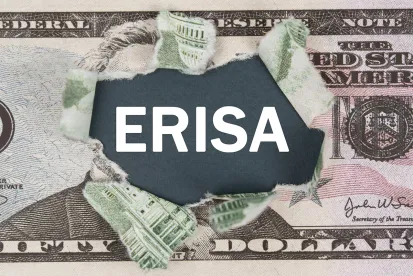In Krutchen v. Ricoh USA, No. 22-cv-678, 2022 U.S. Dist. LEXIS 206792 (E.D. Pa. Nov. 15, 2022), a Pennsylvania district court dismissed an ERISA excessive fee complaint for failing to provide enough information about alleged comparator plans that allegedly paid less for recordkeeping services. The decision is notable for delivering defendants a victory in the Third Circuit, which previously allowed excessive recordkeeping claims to survive dismissal in Sweda v. U. Pennsylvania (we discussed here), and for citing favorably to recent defendant-friendly opinions from the Sixth, Seventh, and Eighth Circuits.
Background
The plaintiffs in Krutchen are former employees of the plan sponsor defendant who participated in its 401(k) plan. The plaintiffs brought claims for breach of the fiduciary duty of prudence and failure to monitor in connection with their allegation that the plan paid excessive recordkeeping fees. In support of their claims, the plaintiffs compared the plan’s expenses to twelve other plans’ recordkeeping expenses, cited a survey of nationwide recordkeeping expenses, and cited case law addressing recordkeeping expenses of other plans.
The District Court’s Decision
The court dismissed plaintiffs’ claims in their entirety but permitted plaintiffs to refile their complaint. In its ruling, the court explained that fiduciaries may select diverse services from bundled offerings or additional a la carte services, as the plan did here. The court recognized that price tag to price tag comparisons without sufficient detail about the services actually being performed are too generalized and speculative to support a plausible inference that defendants breached their fiduciary duties by overpaying for services.
The court faulted plaintiffs for failing to include information regarding the specific services used by the plan, the comparator plans, and the plans reviewed in cited case law. The plaintiffs listed services that all national recordkeepers have the capability to provide and merely alleged that the plan’s selected services “fell within the broad range” of those available. The court found that this did not provide enough information to know whether the fee comparisons were valid or if they were “apples to oranges” comparisons. The court distinguished Sweda, where plaintiffs used “specific comparisons” showing that the “practices of similarly situated fiduciaries” differed from those of the allegedly imprudent plan. The court also found support for its analysis from out-of-circuit decisions in Albert v. Oshkosh Corp., 47 F.4th 570 (7th Cir. 2022) (discussed here); Smith v. CommonSpirit Health, 37 F.4th 1160 (6th Cir. 2022) (discussed here); and Matousek v. MidAmerican Energy Co., 51 F.4th 274 (8th Cir. 2022) (discussed here). Finally, because the duty to monitor claim was derivative of the breach of duty of prudence claim, it was also dismissed.
Proskauer’s Perspective
The decision is a positive development for plan sponsors because it shows that district courts outside of the Sixth, Seventh, and Eighth Circuits seem to be taking to requirements for alleging factual information sufficient to support the validity of comparisons between different plans. Notably, this is the second district court ruling in the Third Circuit in 2022 dismissing recordkeeping claims despite Sweda.




 />i
/>i
